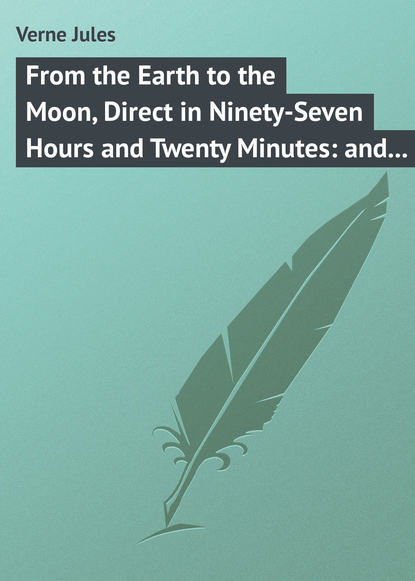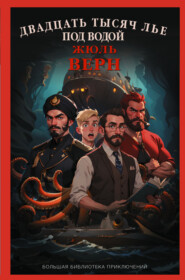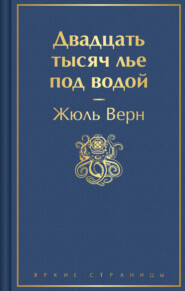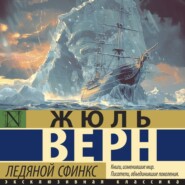По всем вопросам обращайтесь на: info@litportal.ru
(©) 2003-2024.
✖
From the Earth to the Moon, Direct in Ninety-Seven Hours and Twenty Minutes: and a Trip Round It
Настройки чтения
Размер шрифта
Высота строк
Поля
"Simply cast iron," said General Morgan.
"But," interrupted the major, "since the weight of a shot is proportionate to its volume, an iron ball of nine feet in diameter would be of tremendous weight."
"Yes, if it were solid, not if it were hollow."
"Hollow? then it would be a shell?"
"Yes, a shell," replied Barbicane; "decidedly it must be. A solid shot of 108 inches would weigh more than 200,000 lbs., a weight evidently far too great. Still, as we must reserve a certain stability for our projectile, I propose to give it a weight of 20,000 lbs."
"What, then, will be the thickness of the sides?" asked the major.
"If we follow the usual proportion," replied Morgan, "a diameter of 108 inches would require sides of two feet thickness, or less."
"That would be too much," replied Barbicane; "for you will observe that the question is not that of a shot intended to pierce an iron plate: it will suffice, therefore, to give it sides strong enough to resist the pressure of the gas. The problem, therefore, is this – What thickness ought a cast-iron shell to have in order not to weigh more than 20,000 lbs.? Our clever secretary will soon enlighten us upon this point."
"Nothing easier," replied the worthy secretary of the Committee; and, rapidly tracing a few algebraical formulæ upon paper, among which n² and x² frequently appeared, he presently said, —
"The sides will require a thickness of less than two inches."
"Will that be enough?" asked the major doubtfully.
"Clearly not!" replied the president.
"What is to be done, then?" said Elphinstone, with a puzzled air.
"Employ another metal instead of iron."
"Copper?" said Morgan.
"No; that would be too heavy. I have better than that to offer."
"What then?" asked the major.
"Aluminium!" replied Barbicane.
"Aluminium?" cried his three colleagues in chorus.
"Unquestionably, my friends. This valuable metal possesses the whiteness of silver, the indestructibility of gold, the tenacity of iron, the fusibility of copper, the lightness of glass. It is easily wrought, is very widely distributed, forming the base of most of the rocks, is three times lighter than iron, and seems to have been created for the express purpose of furnishing us with the material for our projectile."
"But, my dear president," said the major, "is not the cost price of aluminium extremely high?"
"It was so at its first discovery, but it has fallen now to nine dollars the pound."
"But still, nine dollars the pound!" replied the major, who was not willing readily to give in; "even that is an enormous price."
"Undoubtedly, my dear major; but not beyond our reach."
"What will the projectile weigh then?" asked Morgan.
"Here is the result of my calculations," replied Barbicane. "A shot of 108 inches in diameter, and 12 inches in thickness, would weigh, in cast-iron, 67,440 lbs.; cast in aluminium, its weight will be reduced to 19,250 lbs."
"Capital!" cried the major; "but do you know that, at nine dollars the pound, this projectile will cost – "
"One hundred and seventy-three thousand and fifty dollars ($173,050). I know it quite well. But fear not, my friends; the money will not be wanting for our enterprise, I will answer for it. Now what say you to aluminium, gentlemen?"
"Adopted!" replied the three members of the Committee. So ended the first meeting. The question of the projectile was definitively settled.
CHAPTER VIII.
HISTORY OF THE CANNON
The resolutions passed at the last meeting produced a great effect out of doors. Timid people took fright at the idea of a shot weighing 20,000 lbs. being launched into space; they asked what cannon could ever transmit a sufficient velocity to such a mighty mass. The minutes of the second meeting were destined triumphantly to answer such questions. The following evening the discussion was renewed.
"My dear colleagues," said Barbicane, without further preamble, "the subject now before us is the construction of the engine, its length, its composition, and its weight. It is probable that we shall end by giving it gigantic dimensions; but however great may be the difficulties in the way, our mechanical genius will readily surmount them. Be good enough, then, to give me your attention, and do not hesitate to make objections at the close. I have no fear of them. The problem before us is how to communicate an initial force of 12,000 yards per second to a shell of 108 inches in diameter, weighing 20,000 lbs. Now when a projectile is launched into space, what happens to it? It is acted upon by three independent forces, the resistance of the air, the attraction of the earth, and the force of impulsion with which it is endowed. Let us examine these three forces. The resistance of the air is of little importance. The atmosphere of the earth does not exceed forty miles. Now, with the given rapidity, the projectile will have traversed this in five seconds, and the period is too brief for the resistance of the medium to be regarded otherwise than as insignificant. Proceeding, then, to the attraction of the earth, that is, the weight of the shell, we know that this weight will diminish in the inverse ratio of the square of the distance. When a body left to itself falls to the surface of the earth, it falls five feet in the first second; and if the same body were removed 257,542 miles farther off, in other words, to the distance of the moon, its fall would be reduced to about half a line in the first second. That is almost equivalent to a state of perfect rest. Our business, then, is to overcome progressively this action of gravitation. The mode of accomplishing that is by the force of impulsion."
"There's the difficulty," broke in the major.
"True," replied the president; "but we will overcome that, for this force of impulsion will depend upon the length of the engine and the powder employed, the latter being limited only by the resisting power of the former. Our business, then, to-day is with the dimensions of the cannon."
"Now, up to the present time," said Barbicane, "our longest guns have not exceeded twenty-five feet in length. We shall therefore astonish the world by the dimensions we shall be obliged to adopt. It must evidently be, then, a gun of great range, since the length of the piece will increase the detention of the gas accumulated behind the projectile; but there is no advantage in passing certain limits."
"Quite so," said the major. "What is the rule in such a case?"
"Ordinarily the length of a gun is 20 to 25 times the diameter of the shot, and its weight 235 to 240 times that of the shot."
"That is not enough," cried J. T. Maston impetuously.
"I agree with you, my good friend; and, in fact, following this proportion for a projectile nine feet in diameter, weighing 30,000 lbs., the gun would only have a length of 225 feet, and a weight of 7,200,000 lbs."
"Ridiculous!" rejoined Maston. "As well take a pistol."
"I think so too," replied Barbicane; "that is why I propose to quadruple that length, and to construct a gun of 900 feet."
The general and the major offered some objections; nevertheless, the proposition, actively supported by the secretary, was definitively adopted.
"But," said Elphinstone, "what thickness must we give it?"
"A thickness of six feet," replied Barbicane.
"You surely don't think of mounting a mass like that upon a carriage?" asked the major.
"It would be a superb idea, though," said Maston.
"But impracticable," replied Barbicane. "No; I think of sinking this engine in the earth alone, binding it with hoops of wrought iron, and finally surrounding it with a thick mass of masonry of stone and cement. The piece once cast, it must be bored with great precision, so as to preclude any possible windage. So there will be no loss whatever of gas, and all the expansive force of the powder will be employed in the propulsion."
"One simple question," said Elphinstone: "is our gun to be rifled?"
"No, certainly not," replied Barbicane; "we require an enormous initial velocity; and you are well aware that a shot quits a rifled gun less rapidly than it does a smooth-bore."

















